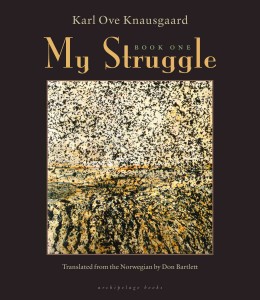25 Points: 7 Days and Nights in the Desert
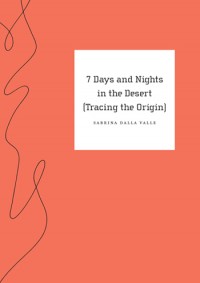 7 Days and Nights in the Desert (Tracing the Origin)
7 Days and Nights in the Desert (Tracing the Origin)
by Sabrina Dalla Valle
Kelsey Street Press, 2013
88 pages / $13.00 buy from Kelsey Street Press
1. Sabrina Dalla Valle is an alchemist, a sorceress, scribe.
2. The role of poet as spell-caster/magician/mystic is seen through these pages. If it’s not clear, how can I say this?
3. everything is indication of moisture in a landscape– not just density of species, but also the shape of the earth.
4. How to propagate a landscape?
5. While reading Dalla Valle’s book I recall being ten years old, casting my first spell.
6. Poetry should transmutate; cause a change from one form, nature, substance, or state into another. In other words to transform the temporal existence.
7. as if not yet fully human
8. Meditation requires practice. There’s an alchemy at work here in these lines
9. Reflect upon the nuances of the question of: what gives us life?
10. like filaments
11. writing is read by the dream
12. I ordered feverfew and other herbs from a catalogue and had it shipped via Cash on Delivery (C.O. D.), a service that no longer exists
13. At the skin of your breath is poetry
14. Photons are their mirror
photons can change into each other:
presence into image, image into presence.
but they can form into mirror planets
and even mirror stars
15. My mother wrote the mailman a check
16. Poems are the path of veins. There’s a ________________ at work here
17. Like poems representing metals
18. Meditation requires practice
19. the principle of combustibility contained within the artist’s line
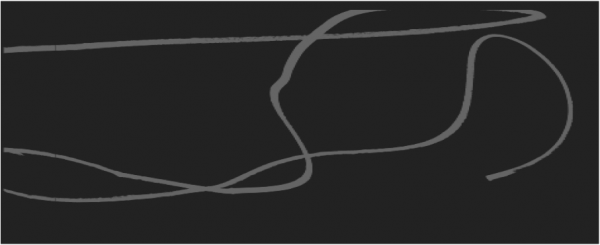
20. has been swelling in my stomach
21. the charge between two words passed back and forth between lovers
22. can touch you
23. can touch
24. embroidered sky
25. If I reach out far enough I can touch that ten-year-old self through the fickle of curved stars
Mg Roberts’ bio:
Born in Subic Bay, Philippines, Mg Roberts teaches writing in the San Francisco Bay area. She is the author of not so, sea (Durga Press, 2014), a Kundiman Fellow, and Kelsey Street Press member. Her work has appeared in the Stanford Journal of Asian American Studies, Bombay Gin, Web Conjunctions, and elsewhere. She’s currently working on an anthology of critical essays on avant-garde writing for/by writers of color.
May 20th, 2014 / 12:00 pm
Catalog of ri¢h poets: Jess Dutschmann
We’re flossy.
We’re the first poets to scream that we’re hot. We got our face tattooed on their arms. That’s right, we brought all the weird lit to the scene, and that’s right we’re the cats that’s getting the cream.
And it sucks because we want almond milk. Al-mond mi-ilk. Just because we are obtusely wealthy with our words and our pauses and our golden bars and other cliches doesn’t mean we don’t have standards.
Whatever. My thoughts are too expensive for you, anyway.
Another week brings another installment of our ri¢h poets series. Please throw your loose pocket change in the air and welcome Jess Dutschmann.

When Possible
The snake in the road was dead.
When you picked it up it shook
its body shook like dance recitals.
It still and then calm and the also
having breathing. Imagine snake
lungs. In and out thumbnails.
There was a wrong snake. Green
and maybe teeth but not angry.
You picked it up it shook alive.
You killed the snake with your
hands and every day the snake
going killing again. You it killed.
Blood can coagulate did you know
but not this little guy. Just a vine
maybe teeth but not hungry dead.
This poem is about snakes. Snakes, as anyone alive is aware of, are made entirely out of cash money. This poem is about not knowing too much about snakes, which are, as anyone alive is aware of, made entirely out of calcium and borax. This poem is about snakes. Snakes, as everyone knows, are already dead. This poem is about snakes, which the cast of The View drinks for every meal in a steaming hot smoothie, each little elongated hexagon scale flitting through the vitamix, catching light like eyelashes on cheeks.
Jess Dutschmann lives in the castle of every vanquished Disney villain. She bought them on the cheap after the usual fire-pit scene. She is made out of thousands of dollars of medical bills. She prays to sixteen gods nobody has heard of and they rain down golden coins until she blinks upward, both eyes bruised to hell, and grins bloodteeth. SheoOOOOoOOOOOOoooOOOOOOOOO
Painted Cities by Alexai Galaviz-Budziszewski
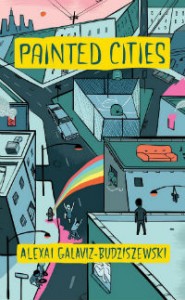 Painted Cities
Painted Cities
by Alexai Galaviz-Budziszewski
McSweeney’s, March 2014
180 pages / $24 Buy from Amazon
Painted Cities is the kind of book that gives me hope. This isn’t the best thing I can say; the best books I read take away my hope altogether, blow me away so thoroughly that I can’t imagine ever writing anything that can even appear in the same medium as them. The best books crush me, leave me in awe.
But hope is not the worst thing I can say, either. The stories in Painted Cities are loose and optimistic. As promised by the sticker plastered to the back of the book, they chart a (usually) first-person narrator’s coming of age in the Pilsen neighborhood of Chicago, where illicit trysts are as likely to happen in the adjacent apartment as shootings are to take place just down the street. The first full story in the collection—it’s preceded by a three-page short, the likes of which are peppered throughout the collection—works in the continuous past, out of scene, for ten pages. The narrator and his sister used to pan for gold in the gutter; they would find 7UP tops and cut their hands on shattered glass. We hear about the neighborhood in an almost endless series of sentences like these, this one describing the parties neighborhood kids had around unscrewed fire hydrants: “From where our pump was, the kids down the block looked like miniature figurines, pet people running about, yapping, like windup toys.” It is only in the final three pages that a nearby apartment building burns down, and the narrator’s family piles into the street to reflect on the ruin that almost seems built in to the tightly-packed Pilsen apartments.
This is what I mean when I say loose. The stories here don’t seem overly concerned about developing a plot. They seem unworkshopped, something that bothered me at first and later, when I thought about it, turned into a virtue. It’s clear that the point of Painted Cities, like its presumable namesake, Calvino’s Invisible Cities, is more the environs than the action that occurs therein. It strikes me as victorious—it gives me hope—that a debut story collection can survive, even thrive, on the sheer, naked power of wonder at the neighborhood the author grew up in.
Some other cases in point. In “Freedom,” the narrator and his newfound friend Buff climb to the top of an old pierogi factory and build a fortress out of scrap wood, imaginatively thriving there until some gangbangers climb up and tear it down. “Maximilian” proposes, “I want to tell you three memories of my cousin Maximilian,” and goes on to do just that. “Blood,” in the guise of a barroom narrator speaking to a second-person listener, riffs on bar etiquette and interpolates events that took place in the bar and the surrounding neighborhood. The five-page “Supernatural” describes the uncanny light that wafts from a polluted river at sundown, and the crowds that are drawn to it.
Even the titles here give off a sort of pleasant naiveté, the possibility that experiences might be reduced to a single salient buzz-word. Of course, the stories’ depiction of a world that is self-consciously less than perfect puts the tongue of titles like “Growing Pains” and “Ice Castles” fairly well in cheek. But still, you see an almost overly earnest impulse in Galaviz-Budziszewski to redeem Pilsen, to make something brighter emerge from its grittiness. At the end of “Blood,” we get:
You got a good friend, that means you do anything for them. That’s being stand-up….A friend’s all you got, they’re family, and once you don’t got family, tell me, motherfucker, what do you got? (128)
At times I’m skeptical. Galaviz-Budziszewski’s biography in the back of the book is self-consciously external not only to the academy many of us are used to but to the publishing world at large. It reads in full:
Alexai Galaviz-Budziszewksi grew up in the Pilsen neighborhood on the south side of Chicago. He has taught in the Chicago public school system and is currently a high school counselor for students with disabilities. In his spare time he builds and repairs motorcycles.
I worry that Galaviz-Budziszewski is trading on his worldliness here, trying too consciously to cultivate a persona that is qualified to speak about the struggles of inner-city life. But when you get the object in your hands, you’ll forgive him quickly. Painted Cities is a beautiful, short book, 180 pages between hardcovers (no dust jacket) that are illustrated wonderfully by Joel Trussel. Galaviz-Budziszewksi is so trusting with his narration, so endearingly willing to pull a thin yarn the length of twelve pages, that you can’t help but like the guy.
And when you get stories like “God’s Country,” the longest in the collection by far at thirty pages, you begin to think that you might be able to do this too. This is where the hope comes in. The story follows a boy who discovers one day that he is able to bring dead creatures back to life. He and his friends spend a summer reviving pigeons, finally bring an OD’d gangbanger back from the beyond.
The end of the story felt like too much to me at first, the kind of sweet wrap-up that a young writer wants to give their stories to cauterize frayed ends. Even today, the retrospective narrator says, when he finds a dead bug in his bathroom he’ll pretend to be his supernaturally powerful friend:
And just for fun I’ll close my eyes, open them, and touch the dead body. I’ll hope that my finger will give life, that I’ll feel again what I felt when I was fourteen, when, in this whole damn neighborhood, among all this concrete, all these apartment buildings, church steeples, and smoke stacks, we were somebody.
But then I let go of my skepticism and let the story be what it is. What is it? A guy remembering what it was like to grow up and wishing, despite the turmoil, that he was still there. That’s something I can appreciate, long string of nostalgic commas or not. And it’s something—this is my favorite part—that I think I might be able to do someday too.
***
Dennis James Sweeney‘s writing appears in recent issues of Word For/Word, Harpur Palate, Unstuck, and Fjords Review‘s Monthly Flash Fiction. He lives in Corvallis, Oregon. Find him at dennisjamessweeney.com.
May 19th, 2014 / 10:00 am
Joseph Riippi’s SUMMER READS
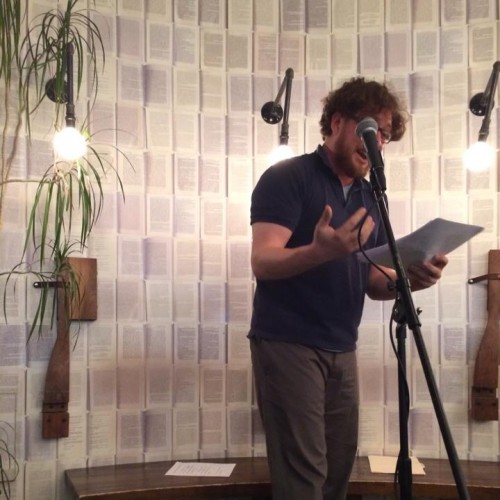
5 books Joseph Riippi is looking forward to this summer as part of this year’s Summer Reads.
***
My Struggle, Volumes I – III by Karl Ove Knausgaard
The series had me at its opening line: “For the heart, life is simple: it beats as long as it can.” I picked up the first two volumes at AWP in Seattle but only just started in and I’m loving the slow-burn reveal of this life. Volume III drops right around Memorial Day, so am hoping to being caught up by then, and then keep going.
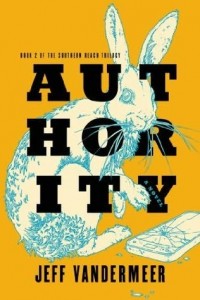
Authority by Jeff Vandermeer
I read a lot of books on buses this spring thanks to a book tour, and Vandermeer’s Annihilation—the first installment in his Southern Reach Trilogy—was one of my favorites. Its length was perfect for the ride to DC, and I just couldn’t put it down, a kind of understated post-apocalyptic thriller that was more about the characters than the post-apocalyptic landscape. Very excited for Authority, the second volume.
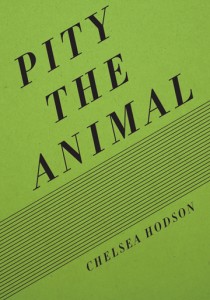
Scout Books Chapbooks by Chelsea Hodson, May-lan Tan, and Jay Ponteri
This is actually three books, but they’re chappys and they come out at the same time from the same place so let’s count them as one. Girly by May-lan Tan, Pity The Animal by Chelsea Hodson, and Darkmouth Strikes Again by Jay Ponteri are the next round of Scout Books from Kevin Sampsell’s Future Tense press, and are sure to be beautiful pocket-fitting objects for the summertime, nice little fistfuls of lit to sip beneath trees or on benches or while sitting under sun and waiting for your second hefeweizen at a beer garden in the early afternoon. (I have very specific plans for these, obviously).
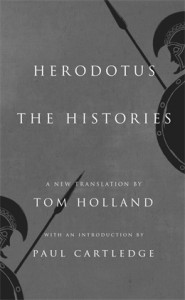
The Histories, by Herodotus (new translation by Tom Holland)
My wife and I are going to Southeast Asia for the month of June and I won’t have room for much in the way of multiple books, so I’ve decided to bring one big, beefy tome to which I can attach the sentiment of our adventure. Plus, I’ve wanted to get into The Histories ever since first reading about it in The English Patient. The Ondaatje nerd in me is incredibly excited about filling my own Herodotus with receipts and scraps and a great deal of marginalia.
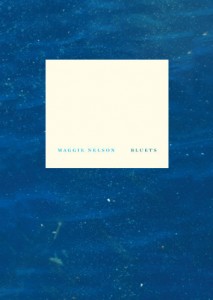
Bluets by Maggie Nelson
It’s just time.
***
Joseph Riippi’s most recent books are the novel Because and chapbook Puyallup, Washington (an interrogation), with illustrations by Edward Mullany. His next novel, Research: A Novel for Performance, is forthcoming this October from Civil Coping Mechanisms. Visit josephriippi.com.
May 19th, 2014 / 10:00 am
Marty Cain
Every Blessèd Day I Feel a Gun To My Skull
I was crapping in an outhouse by a Mississippi highway
I was wishing for a fog that could raise the dead
I felt free from my body for a waking second
The traffic sung but my face was hidden
In my dreams I sleep in a stranger’s house
I see Death rise in the darkened window
He knocks on glass, his pale face shining
He leaves his horse painting by the door
Listen, he says, I’ll tell you a secret
He chokes the handkerchief around my neck
He moans the name of someone else
We hum like a beehive in the dark
We make love with his clammy hand at my throat
My blue-threaded self then wisping out softly
Death never mistook me for a man
O every blessèd day I feel a gun to my skull
O every day when I’m against the wall
I want to exhume my voice from the back of my throat
I want raise it up from the base of the well
& let my corpus rot at the bottom
Allow my spirit to bellow loud
O make me a woman on all fours hissing
Her black hair wild & eyes gone white
The spirits swimming like ink from the sockets
O Lord shake me awake from my livelong nap
Make me a newborn steaming in a foggy pasture
Make me a split-open night-crawler foaming over
With the popped-off head & a new one growing
O every blessèd day I feel a gun to my skull
O every day when I’m against the wall
I wish I was doe in the morning dew
I dream of the sky for the sky can shake you
I dream of the dagger for the dagger can shake you
I dream of the bed for it has no ending
Wish I wasn’t a guppy with a knife in its gills
Wish I wasn’t a gator playing dead
Wish I was a thresher who could cut through the tide
I hear the cornfield sway like an ocean on fire
I wish I was a knife in the forest flying
Bio: Marty Cain is an MFA candidate at the University of Mississippi, where he reads for PANK and The Yalobusha Review. His poems have appeared (or are forthcoming) in Rattle, The Journal, The Minnesota Review, Word Riot, and elsewhere. Find him online.
Living With a Wild God by Barbara Ehrenreich
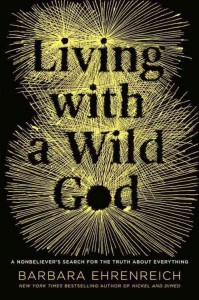 Living With a Wild God: A Nonbeliever’s Search for the Truth about Everything
Living With a Wild God: A Nonbeliever’s Search for the Truth about Everything
by Barbara Ehrenreich
Grand Central Publishing, April 2014
256 pages / $23.50 Buy from Amazon
The first thing I read about Barbara Ehrenreich’s Living With a Wild God, out last month from Hachette Book Group, was the Amazon blurb. There was no question about whether I would read a book by Ehrenreich (Nickel and Dimed, Bait and Switch); she has already, for my money, proven her inherent cultural worth, despite the fact that I don’t always find her arguments entirely convincing. I turned to the blurb merely to identify the topic of this latest offering, and, since my mind was already made up to buy it, I skimmed. A few phrases jumped out, namely “In middle age, she rediscovered the journal she had kept during her tumultuous adolescence…” and “bringing an older woman’s wry and erudite perspective to a young girl’s impassioned obsession…” Those bits, along with the book’s subtitle (“A Nonbeliever’s Search for the Truth About Everything”), were enough for me to imagine the scope of the entire book, which went something like this: Teenaged Barbara keeps a diary that asks questions like “Is there really a God?” and “Should I go to second base with Steve C. after homecoming?” Older Barbara rereads this sweet, mortifying relic and brings some hard-won, grown-up wisdom to the whole ordeal.
I could not have been more off base (or, perhaps, worse at skimming). Living With a Wild God does include small excerpts from some of Barbara’s papers, but calling them a “diary” would be a real stretch, as would calling Barbara anything as conventional as a “teenager.” Barbara was exceptional (her father claimed to have an IQ of 187, and though she says this “put the rest of us at the level of insects by comparison,” you certainly get the sense that she didn’t fall too far from the tree), and her teenage papers are filled with commentary on things like quantum mechanics and the work of Sartre, Camus, Nietzsche, Tchaikovsky, and Borodin (just to name a few). At the age of 15 or 16, she becomes particularly taken with chemistry, summing up the obsession like this:
I am a supersaturated solution, I’m a filter paper who’s had too much. Chemistry is the last thing I think of at night and at 6:30 AM my first conscious thought is about the occurrence of aluminum. And this is only the introduction to the preface to the beginning of the most elementary chemistry. It’s not blood in my veins, it’s a colloidal suspension.
It struck me as I was reading that adolescent Barbara is a dead ringer for Paloma Josse, the twelve-year-old heroine in Muriel Barbery’s The Elegance of the Hedgehog. Both young ladies ask, via their notebooks, “What’s the point of it all?” While the question is common, these two are actually smart enough to take a serious, multi-disciplinary stab at an answer. Both find that answer to be, at least at first, fairly bleak.
One gets the sense, though, that Paloma, despite her suicidal plans, is going to be okay. Structurally, Barbery makes it clear that the child is working her way toward the lonely concierge Renée, and Paloma exhibits just enough childish thinking to lighten the mood. I spent most of Living with a Wild God, however, wanting to give young Barbara a cup of hot chocolate and a big old hug. Her childhood is atrocious. Her parents are hostile alcoholics who value “rationality” above all else, including—it seems—love. With a home life like that, it’s no wonder she became a solipsist at 14.
May 16th, 2014 / 10:00 am
Janey Smith’s SUMMER READS
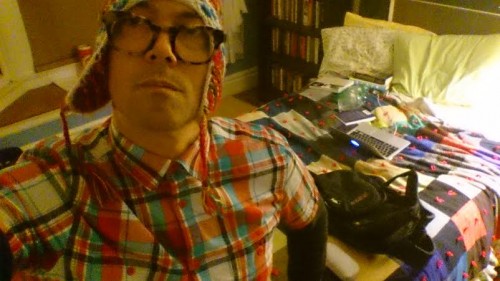
Summer Reads continues w/ Janey Smith…
***
Content Warning: Six Books You Shouldn’t Read | Janey Smith
Janice Lee asked me to list six books that everyone should have on their summer reading list. Warning: These books will not affect you in any way.
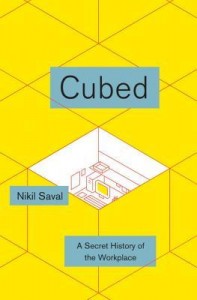 1. Cubed: A Secret History of the Workplace by Nikil Saval (Doubleday, 352pp)
1. Cubed: A Secret History of the Workplace by Nikil Saval (Doubleday, 352pp)
Nikil Saval has written a book about the secret history of office work, which is great because tedious, numbing work and near total isolation make my day—five days a week. To be honest, I really like office work. Like so much of social life, it’s a lot like acting. It’s repetitive and I know exactly what I’m going to get if I behave a certain way. Besides that, I like to copy people and the things they do. I make awkward postures all day. When someone asks me how my day at work was I always say the same thing, “I don’t remember.” That’s what makes office work so great. I don’t remember any of it. I mean, I do remember some things like where I put my stapler, but I do the same thing everyday. I hear people say that office work is so boring but it’s not. When I’m at the office I daydream a lot and I always think of things to do that are bad. I really like office work. Without it I would never get bored.
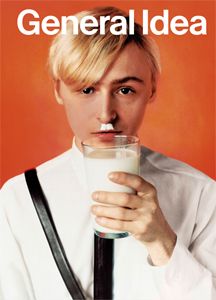 2. General Idea: A Retrospective 1969-1994 (jrp | ringier, 224pp)
2. General Idea: A Retrospective 1969-1994 (jrp | ringier, 224pp)
Most of the time I have no idea what art is. So it’s nice to know that Felix Partz, Jorge Zontal, and AA Bronson had a general idea of what it was. Eschewing a politics of identity and freed from the tyranny of individual genius—they considered themselves a trouple—General Idea took credit for everything it did as if it were one body, and not three. Furthermore, most of their shows were free. General Idea was really great. They understood that to be a great artist you had to be glamorous, act famous, and mix up fiction and reality. Everybody seems to think that you have to make things to be an artist but you really don’t. All you have to do is host beauty pageants, paint poodles blue, and put AIDS posters up in your neighbor and you, too, can be an artist. The best thing about General Idea is that they adopted a generic identity, which is great because to have no personality—or even multiple ones—is better than to have one personality.
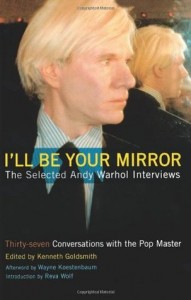 3. I’ll Be Your Mirror: The Selected Andy Warhol Interviews Edited by Kenneth Goldsmith, Introduction by Reva Wolf, Afterword by Wayne Koestembaum (Carroll & Graf, 428pp)
3. I’ll Be Your Mirror: The Selected Andy Warhol Interviews Edited by Kenneth Goldsmith, Introduction by Reva Wolf, Afterword by Wayne Koestembaum (Carroll & Graf, 428pp)
I really like Kenneth Goldsmith. He takes all the things an office worker does and uses that to make poems. And like most office workers he dresses really badly, which is great because poets get a bad rap for spending all their temp-job money on expressive clothes. But anyway, did you see that costume he wore at the White House? If I were president of something, I would have had him arrested for crimes against mundanity. It was really that bad. A total fashion atrocity. Goldsmith resembled a circus clown on LSD, which would have been really great had he done something incendiary to tip the scales in the war on income inequality. Instead, he read a poem about a bridge. Governor Christie seemed pleased. I’ll Be Your Mirror is a great book—thirty-seven selected interviews with Andy Warhol, each one demonstrating Warhol’s art of giving an interview—but Goldsmith should look in the mirror once in while and say, “No. I’m not going to do it,” and put his pajamas back on and pretend it’s the 1990s. Or better, hire a fashion consultant—someone, like Vanessa Place or Kate Durbin, who knows how to dress—after all, he can afford it with his professor’s salary.
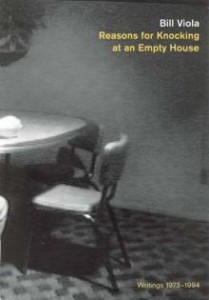 4. Bill Viola: Reasons for Knocking at an Empty House: Writings 1973-1994 (MIT, 300pp)
4. Bill Viola: Reasons for Knocking at an Empty House: Writings 1973-1994 (MIT, 300pp)
Anytime Marjorie Perloff praises someone I want to remind her that I love wigs as much as Nada Gordon but Perloff’s no Andy Warhol and that mop atop her head looks awful. (To be fair, I acquire almost anything Perloff’s name is associated with.) The only reason I picked up this book is because Bill Viola writes about a cow on page 86.
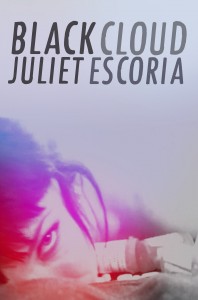 5. Black Cloud by Juliet Escoria (Civil Coping Mechanisms, 138pp)
5. Black Cloud by Juliet Escoria (Civil Coping Mechanisms, 138pp)
Juliet Escoria writes really great stories about summer romances. The formula is simple: Two people meet, they do all this crazy fucking, then everybody’s throwing up and screaming at each other. What’s neat is that the drama of heavy drug use which makes every story in this collection seem like a trailer park debutante ball obscures the mental illnesses that so many of the characters suffer. And so, in a way, it reminded me of Facebook: a fiction that advertises its characters illnesses in such a way that it’s easy to like it. But something else really important—something like office work—is also going on here: Juliet’s book is like a play, or a bunch of skits, like something we do when we’re at the water cooler at work except in Juliet’s play nobody is acting and everyone is falling apart. I asked Juliet how she wrote her book and she looked at me and didn’t say anything. When I asked her what time she gets up in the morning she said early. When it gets really late at night and I’m on drugs I feel sick. I think black clouds are beautiful.
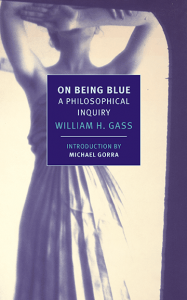 6. On Being Blue: A Philosophical Inquiry by William H. Gass (nyrb, 91pp)
6. On Being Blue: A Philosophical Inquiry by William H. Gass (nyrb, 91pp)
William H. Gass is a famous intellectual. On Being Blue is an entire book about the color blue, which is great because somebody is going to have to know how to put blue back together after the oceans and the skies disappear. What’s funny is that I didn’t feel anything when I read this book. When I see blue I kind of go blank. So, while reading this book I also went blank. It was a great book. Now I know why I like to stare at the sky for a long time. It’s so ugly. One time I tried to think of something and I couldn’t think of anything. The only time I’m sad is when I don’t have any money. Being blue is something like that. There’s a whole ten pages on pubic hair. The best kind of philosophical inquiry is one with lots of fucking. This book is mostly porn. The cover is purple.
***
Janey Smith is a writer in San Francisco. His work will appear in the anthology 40 Likely To Die Before 40: An Introduction to Alt Lit. He hosts Live at 851: A Reading Series in San Francisco.
May 16th, 2014 / 10:00 am
On Exactitude in Non-Library Science
 The Non-Library
The Non-Library
by Trevor Owen Jones
Punctum Books, 2014
104 pages / open-access (e-book), $11.00 (print) buy from Punctum Books
Rating: 9.0
Dear T.,
Already a few years ago now you composed a correspondence to mark the appearance of Judith Schalansky’s Atlas of Remote Islands: Fifty Islands I Have Never Set Foot on and Never Will. I return to that correspondence, on the publication of your first book, The Non-Library, because to do so seems to me somehow apposite. That may be the reason I find myself writing to you, to try to understand my sense of just why. READ MORE >
May 15th, 2014 / 1:15 pm
5 Points: Boo, The Life of The World’s Cutest Dog
1) The first thing that blew me away when I returned home from Brooklyn and greedily opened my Boo (which was waiting for me along side biographies of Shakespeare and Jonson) was the sheer Whitmanesque charisma and scintillation of it all: the big-heated spirit, the boundless energy , the Joie-De-Vivre. And yet, also, I was amazed by a stealthy and shrewd persona. A veritable host of personas! But, all in all, loveable. Absolutely loveable.
I had to rub my eyes once or twice, I admit, and scratch my ass, pensively, and then return to the bounties of the book to see if it was all for real. I mean, how could it be ?? … But, Yes! Yes! Yes! … Look, for example, at how Whitman’s “I lean and loaf at my ease” translates, and upgrades even, so seamlessly, to Boo’s elegant and contemporary “I like to lounge around the house.”
And, delightfully, also, there is something tremendously naughty in the way Boo enchants us with his insouciance. His lazy wisdom. His casual control of self and universe. It is indeed impressive. And quite enchanting. Intoxicating. And heady…..Yes, folks hungry for the “real deal”, Boo is here. And he is a game changer. One for the cannon. Or one, really, round which the cannon rebuilds and redefines itself.
2) The most important question the serious student or master of literature must ask when measuring a candidate up against Walt Whitman, the Titan and father of American Literature, is “Does the subject contains multitudes??”
And indeed Boo proves over and over to be multitudinous READ MORE >
May 15th, 2014 / 9:00 am

